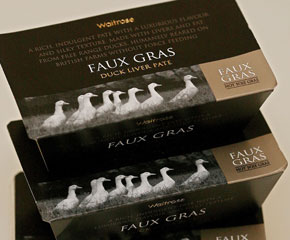“We can confirm that the Prince of Wales does have a policy that his chefs do not purchase foie gras,” a spokeswoman for his official London residence, Clarence House, said.
“But that is a long-standing policy, for personal reasons.” Britain bans the production of foie gras – a liver pate made by the force-feeding of ducks and geese – but still allows it to be imported.
A number of British newspapers said the prince has promised to review the royal warrant given to one of his favourite shops near his country residence at Highgrove, western England, after learning it sold foie gras.
He was told about the shop, in the picturesque village of Tetbury, by the animal welfare group Vegetarians International Voice for Animals (Viva), which has mounted a long campaign against the delicacy.
Viva’s Justin Kerswell said the prince’s move was welcome but long overdue, as there was increasing support for the food to be banned on animal cruelty grounds.
“Foie gras is seen as very posh and the heir to the throne is probably the poshest person in Britain so for him to ban it is very good news,” he was quoted as saying by the Daily Telegraph.
Britain follows
Last week, one of Britain’s leading restaurants, the Michelin two-star Midsummer House in Cambridge, eastern England, banned foie gras from its menus.
Last August, the upmarket department store Harvey Nichols decided to stop selling foie gras to avoid inflaming animal rights activists.
Supermarket chain Waitrose stopped selling foie gras on animal cruelty grounds six years ago, but sells a product called “faux gras” – similar in taste to foie gras but made without force-feeding.

